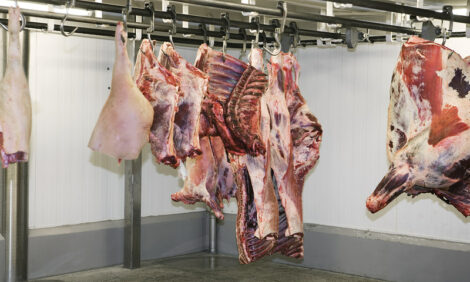



Ceva Helps Vets Promote Responsible Use of Anti-Infectives
UK - Ceva Animal Health was proud to support Herefordshire-based Belmont Veterinary Practice’s recent client workshop on the safe and responsible use of medicines, specifically anti-infectives.The initiative, held last month, was attended by sheep, beef and dairy farmers from across the region and aimed to explain when, why and what the responsible treatment options should be when it comes to using anti-infectives, as well as vaccines and non-steroidal anti-inflammatories on farm.
Antimicrobial resistance is recognised as one of the largest threats to animal health and best clinical practice includes their responsible use on farm and in practice, at all times. Recognised as a highly important topic for today’s practising vets, it is also imperative that clients clearly understand the reasoning and methodology behind responsible anti-infective protocols.
The workshop, organised as part of the XL Vets group Farm Skills programme on safe and effective use of medicines, was co-hosted by Belmont’s large animal vets Roger Serres and Dominic Alexander.
Through informal discussion, debate and hands-on sessions, a broad range of topics were covered relating to everyday life in livestock farming, as well as more technical aspects such as the pharmacokinetics of anti-infectives.
Roger Serres explains: “The prerequisites for the use of any medicine on farm are user safety, animal safety and safety for the general public. We actively encourage clients to seek our support and advice to make sure all medicines are used responsibly and sustainably to minimise risk and avoid any unnecessary financial losses.”
Ceva both sponsored and provided literature support for the event. Ceva also funds antimicrobial sensitivity tests as a part of its Cevolution™ offering to enable responsible, evidence-based treatment approaches.
Ceva’s Managing Director Alan Doyle said: “Resistance is a serious issue, not only in the UK but internationally and it is our duty to address the problem meticulously, in order to preserve our veterinary medicine box for future animal health. Encouraging routine culture and sensitivity testing is a logical first step as it helps take the predictive element out of treatment choices to ensure best efficacy.”
| TheCattleSite News Desk |


